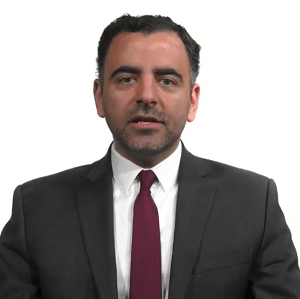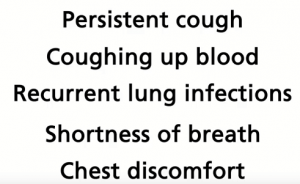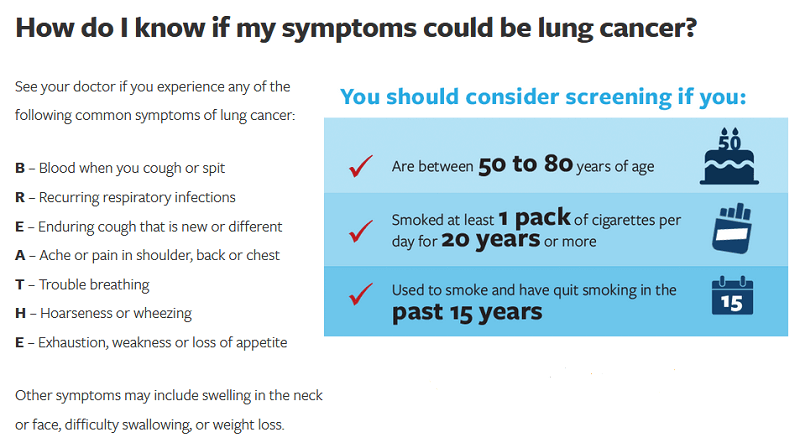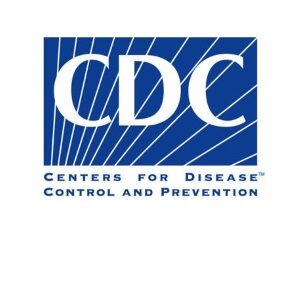About lung cancer
Learn about the risk factors for lung cancer and what you might be able to do to help lower your risk. Find out how lung cancer is tested for, diagnosed, and staged.
Learn what lung cancer is, what the symptoms are, how to lower your risk, and who should be screened for lung cancer.
Explore the links here to learn more about lung cancer treatment, prevention, screening, statistics, research, clinical trials, and more.
What you need to know about lung cancer. What to do after a lung cancer diagnosis. What to do when a loved one is diagnosed.
Signs and Symptoms of Lung Cancer


“If somebody is experiencing these symptoms, it’s very important to contact your doctor, whether that’s a primary care doctor or a pulmonologist, to let them know about these symptoms or let them know you’re having concerns,” says says Mark Awad, MD, a thoracic oncologist at the Dana-Farber Cancer Institute in Boston.
Cigarettes are the # 1 Risk Factor for Lung Cancer

Cigarette smoking is the number one risk factor for lung cancer. In the United States, cigarette smoking is linked to about 80% to 90% of lung cancer deaths. Using other tobacco products such as cigars or pipes also increases the risk for lung cancer.
People who smoke cigarettes are 15 to 30 times more likely to get lung cancer or die from lung cancer than people who do not smoke. Even smoking a few cigarettes a day or smoking occasionally increases the risk of lung cancer. The more years a person smokes and the more cigarettes smoked each day, the more risk goes up.
Source: “What Are the Risk Factors for Lung Cancer?” from the Centers for Disease Control and Prevention”
Lung Cancer Leading Cause of Cancer Death
“Lung cancer is the leading cause of cancer death for both men and women in the United States.
There are two main types of lung cancer, small cell lung cancer and non small cell lung cancer. The cancer cells of each type grow and spread in different ways.
Smoking is the single most important risk factor for lung cancer. Quitting smoking greatly reduces but does not eliminate your risk of developing lung cancer. Lung cancer can also occur in people who have never smoked.
Other risk factors for lung cancer include HIV infection, family history of lung cancer and exposure to secondhand smoke Rayden asbestos arsenic chromium, nickel suit tar radiation or air pollution. “
A 5-minute video from the National Cancer Institute.





